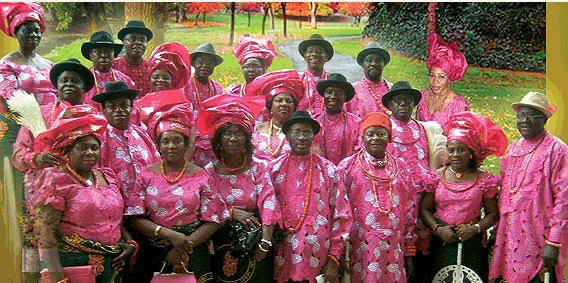List Of Indigenous Tribes, Languages, And Ethnic Groups In Delta State, Nigeria
Delta State, located in southern Nigeria, is one of the most ethnically diverse states in the country. It is home to several indigenous tribes and ethnic groups, each with its own language, cultural traditions, and historical background. As one of Nigeria’s major oil-producing states, Delta plays a crucial role in the nation’s economy while also preserving its rich heritage.

This article provides a detailed list of the indigenous tribes, languages, and ethnic groups in Delta State, highlighting their unique identities and contributions.
1. Overview of Ethnic Diversity in Delta State
Delta State is known for its multicultural and multilingual population, consisting of Urhobo, Itsekiri, Isoko, Ijaw, and Anioma (Igbo-speaking groups) as the major ethnic groups.
Key Ethnic Features of Delta State:
- Major Ethnic Groups: Urhobo, Itsekiri, Isoko, Ijaw, Anioma (Igbo-speaking groups).
- Number of Indigenous Tribes: Over 15 distinct ethnic groups.
- Languages Spoken: Urhobo, Itsekiri, Isoko, Ijaw, Ukwuani, Igbo, and more.
- Religions: Christianity (majority), with some traditional religious practices.
2. Major Ethnic Groups and Their Languages in Delta State
A. Urhobo People
The Urhobo are the largest ethnic group in Delta State. They are known for their rich cultural heritage, strong traditional institutions, and artistic expressions.
- Language: Urhobo
- Location: Ughelli, Ethiope, Okpe, Sapele, and Uvwie LGAs.
- Culture: Known for traditional festivals, age-grade systems, and dance forms.
- Religion: Mostly Christianity, with some traditional beliefs.
B. Itsekiri People
The Itsekiri are a riverine ethnic group with strong historical connections to the Benin Kingdom and European traders.
- Language: Itsekiri (related to Yoruba)
- Location: Warri South, Warri North, and Warri Southwest LGAs.
- Culture: Known for royal heritage, the Olu of Warri Kingdom, and trading traditions.
- Religion: Predominantly Christianity, with some traditional practices.
C. Isoko People
The Isoko people, closely related to the Urhobo, maintain a distinct language and cultural identity.
- Language: Isoko
- Location: Isoko North and Isoko South LGAs.
- Culture: Known for farming, trading, and traditional leadership structures.
- Religion: Primarily Christianity, with some ancestral worship.
D. Ijaw People
The Ijaw are a prominent ethnic group in the riverine and coastal regions of Delta State, known for their seafaring skills, fishing traditions, and resistance to colonial rule.
- Language: Ijaw (Izon)
- Location: Burutu, Bomadi, Patani, and Warri Southwest LGAs.
- Culture: Famous for canoe building, traditional war dances, and rich oral traditions.
- Religion: Mostly Christianity, with some indigenous beliefs.
E. Anioma People (Igbo-Speaking Deltans)
The Anioma people are Igbo-speaking and share cultural similarities with the Igbo of southeastern Nigeria.
- Language: Igbo (Ukwuani, Enuani, Ika dialects)
- Location: Oshimili, Aniocha, Ukwuani, and Ndokwa LGAs.
- Culture: Known for Igbo traditional festivals, the Ofala festival, and masquerade dances.
- Religion: Christianity is dominant.
3. Complete List of Indigenous Tribes in Delta State
Delta State has over 15 indigenous ethnic groups, including:
- Urhobo
- Itsekiri
- Isoko
- Ijaw (Izon, Mein, Arogbo, Egbema, Gbaramatu, Ogbe-Ijaw, Seimbiri, Obotebe, and Furupagha subgroups)
- Anioma (Igbo-speaking groups: Ukwuani, Enuani, Ika, and Ndokwa)
- Okpe
- Ezon (a subgroup of Ijaw)
- Aboh
- Ebu
- Ibrede
- Ogwashiku
- Obiaruku
- Asaba
- Kwale
- Ibusa
Each of these ethnic groups has its own distinct customs, dialects, and cultural identity, contributing to Delta State’s diversity.
4. Languages Spoken in Delta State
Delta State is linguistically diverse, with multiple indigenous languages spoken. Some of the main languages include:
- Urhobo – Predominantly spoken in Ughelli, Sapele, Ethiope, and Okpe.
- Itsekiri – Spoken in Warri and surrounding areas.
- Isoko – Spoken in Isoko North and South LGAs.
- Ijaw (Izon dialects) – Spoken in Burutu, Bomadi, and Patani.
- Igbo (Ukwuani, Enuani, Ika dialects) – Spoken in Anioma (Delta North).
- English and Pidgin English – Used as lingua franca across the state.
Most Deltans are bilingual or multilingual, often speaking English, Nigerian Pidgin, and their native languages.
5. Cultural Festivals and Heritage in Delta State
Delta State is famous for its rich cultural traditions and vibrant festivals. Some of the most notable ones include:
- Olu of Warri Coronation Festival (Itsekiri) – Celebrates the installation of the Warri King.
- Ijaw Amaseikumor Festival (Ijaw) – Honors Ijaw heritage and ancestors.
- Isoko Festival (Isoko) – A major event celebrating Isoko culture and traditions.
- Ofala Festival (Anioma Igbo) – Celebrates the Obi (King) of Anioma communities.
- Urhobo Annual Cultural Festival – Highlights Urhobo traditional dances, music, and art.
These festivals help preserve Delta State’s unique cultural identity and attract tourism.
6. Frequently Asked Questions (FAQs)
1. What is the main ethnic group in Delta State?
The Urhobo people are the largest ethnic group in Delta State.
2. How many ethnic groups are in Delta State?
Delta State has over 15 indigenous ethnic groups, including Urhobo, Itsekiri, Isoko, Ijaw, and Anioma (Igbo-speaking people).
3. What language is most commonly spoken in Delta State?
The most spoken indigenous languages include Urhobo, Itsekiri, Isoko, Ijaw, and Igbo (Ukwuani, Enuani, and Ika dialects).
4. Are the Anioma people in Delta State Igbo?
Yes, the Anioma people speak Igbo dialects (Ukwuani, Enuani, Ika) and share cultural ties with the Igbo of southeastern Nigeria.
5. What is Delta State known for?
Delta State is famous for:
- Oil and gas production.
- Cultural diversity and festivals.
- Warri Kingdom and the Olu of Warri.
- Tourist sites like River Ethiope and Nana’s Palace.
7. Conclusion
Delta State is one of Nigeria’s most ethnically diverse states, with a rich mix of indigenous tribes, languages, and traditions. Whether it’s the Urhobo and their deep-rooted customs, the Itsekiri Kingdom, the Isoko communities, or the Ijaw riverine settlements, Delta State remains a cultural and economic powerhouse.
Are you from Delta State? Which ethnic group do you belong to? Let us know in the comments!





